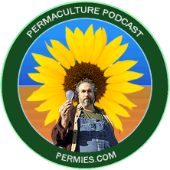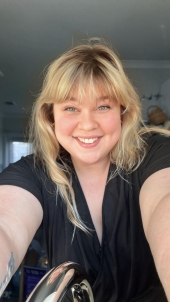Craig Dobbelyu wrote:At this point it would take more work to undo the work of the Holzer clan than to just leave it alone. I think the goal of a community should be to have an ecosystem that can manage itself through time with or without the residents. That way the residents are part of the system, NOT rulers over it.
When a system works well, there's no reason to change it when somebody dies or leaves.
interesting line of thinking Craig.
I agree the the goal of (my sort of) permaculture is to create something which go perpetuate itself more or less naturally without human interference. However, this is a very lofty goal. Even for someone as sophisticated as Sepp.
As far as I know, he still plants seeds, and thus the krameterhof would still need human attention to retain it's level of productivity to humans. So there would be some substantial changes in the land if people stopped caring for it.
I would also add that that physical permaculture system is there (at least in part) in order to support a human community. If the human community no longer retains the political leverage to stay on the land, then Sepps work will likely go feral unless some organization which is aligned with Sepp's Values can get political control. (I use the world "political" control, to differentiate between ultimate control. as that is impossible as Craig pointed out).
One of the large, often overlooked, aspects of creating a sustainable culture, is how assets get passed from generation to generation.
We have a prevalent model that property and assets get passed down through a family lin (through genetic lines). There is some downsides to this, as there is often little connection between the economic conditions and desires of the generation that founds something as awesome as the Kramaterhoff, and the next generation who grows up within the context of what was build. There is no telling if anyone's children will actually retain a continuity of interest in alignment with their parents.
Howe and Strauss go into this pattern to great depth in there work
The Fourth Turning, where they map out examples of how family-lines often go from riches-to-poverty in a matter of four generations.
That's why I feel it is important that there be a much more notable conversation about workeable "social permaculture" systems that can preserve land, land-knowledge, ecological stewardship values, connections in the wider community, tools an resources, etc...
Through my studies I have found that Corporations, Monastaries and Intentional Communities are perhaps the best cultural models we have for the intergenerational stewardship of land and resources.
It is of great importance to me, given that I am part of a community who has been working to transition leadership and stake-holding in out intentional community. These organizational structures allow that the people who inherit the resources there be some kind of continuity of values and vision that can transcends generations. The people who inherent a company, a monastery or an IC are not often the genetic relatives of the people ran it before. instead, the people who manifest that they are capable of "moving the mission forward" and share the values and similar world-view of the people who stewarded the organization beforehand.
It is such a model that me and others at Windward are working to model. hence my interest in What Sepp is doing in this regard. I have seem countless life-work project in the vein of the Krameterhoff be failed to be sustained by the model of inheritence by genetic kin. I hope Sepp's son can be an exception to this.
While it may take a lot of energy to destroy what Sepp has done physically to his land, it would be a a shame to see it all go feral an underutilized.
How many permaculture farms are out there? WHat is going to happen to them in 30 years? We are in a time of great uncertainty, and the price of such a wasted endeavour seems unreasonably high.









 1
1






















 1
1




 1
1


















